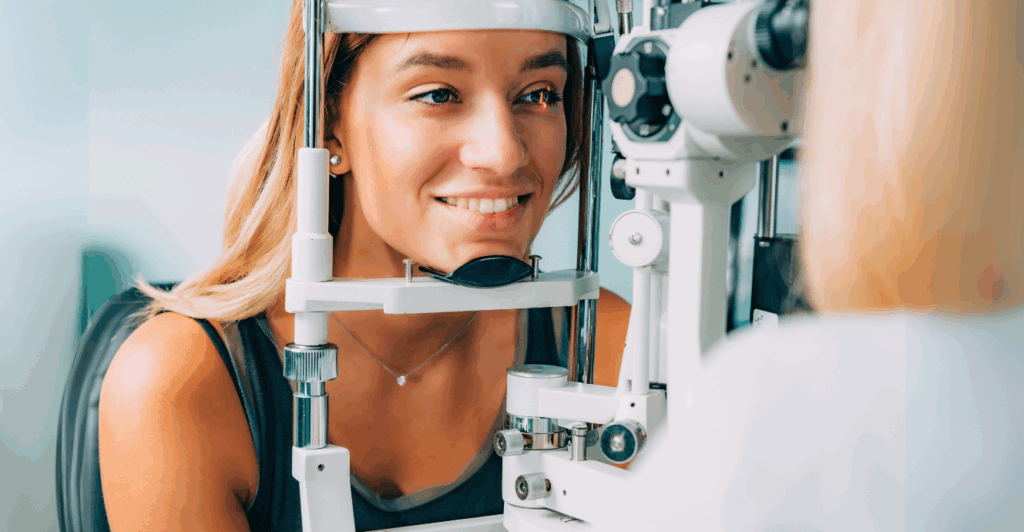Top Eye Health Tips Every College Student Should Know
Discover essential eye care tips for college students. Learn how to prevent eye strain, protect vision, and keep your eyes healthy while you study.

College life is busy — between packed schedules, late-night study sessions, and endless screen time, eye health often takes a back seat. While many students prioritize fitness or nutrition, protecting your vision is just as important for success in the classroom and beyond.
The good news? Simple habits like taking screen breaks, practicing good contact lens care, and scheduling regular eye exams can make a big difference in maintaining healthy vision during these years and for life.
1. Take Breaks During Screen Time
Excessive screen use can lead to digital eye strain, causing dryness, discomfort, and blurred vision. Students tend to blink less while studying on digital devices, which makes symptoms worse.
Try the 20-20-20 rule: every 20 minutes, look at something 20 feet away for 20 seconds.
Other helpful strategies:
- Alternate between e-books and paper books.
- Adjust screen brightness and contrast to a comfortable level.
- Avoid working in bright or outdoor glare.
- Sit with good posture to reduce strain on your eyes and body.
2. Practice Safe Contact Lens Habits
Studies show most contact lens wearers admit to at least one risky habit — such as sleeping in lenses or not replacing cases often enough. These behaviors increase the chance of serious eye infections.
To stay safe:
- Wash your hands before handling lenses.
- Replace solution daily — never “top off.”
- Follow your doctor’s recommended replacement schedule.
3. Don’t Share Eye Makeup
Sharing makeup can spread infections like pink eye (conjunctivitis). Always use your own products and toss them every three months. If you develop an eye infection, stop using eye makeup immediately.
4. Protect Your Eyes During Sports
More than 30,000 sports-related eye injuries send people to U.S. emergency rooms every year — most of them preventable. If you play sports, wear protective eyewear designed for your activity.
5. Healthy Lifestyle, Healthy Eyes
Your lifestyle choices today shape your long-term vision health. Staying active, eating a nutrient-rich diet, and avoiding smoking reduce the risk of serious eye diseases like macular degeneration, cataracts, diabetic retinopathy, and glaucoma.
Adequate sleep is also essential. Poor sleep can worsen dry eye, cause eye spasms, and affect your overall health.
6. Protect Your Eyes from UV Rays
Wearing sunglasses that block UVA and UVB rays helps prevent cataracts, macular degeneration, and even some eye cancers. Starting this habit young makes a big difference over a lifetime.
7. Schedule Regular Eye Exams
Routine comprehensive eye exams are one of the best ways to protect your sight. They not only catch vision problems early but can also reveal underlying health conditions such as:
- Diabetes
- High blood pressure
- Autoimmune diseases
- Certain cancers
If you have a higher risk of glaucoma (family history or diabetes), ask your eye doctor how often you should be checked.

The Bottom Line
The choices you make now — from safe screen habits to wearing sunglasses — can protect your eyes for decades to come. Regular eye exams are key to catching problems early and keeping your vision strong throughout college and beyond.
Don’t wait until you notice a problem. Schedule your comprehensive eye exam today and invest in a lifetime of healthy vision.
Source: American Academy of Ophthalmology | Eye Health Tips for College Students